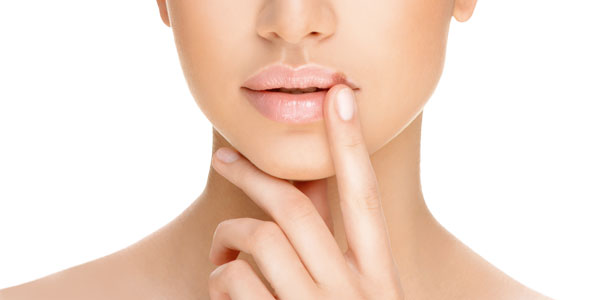A cold sore is not a pleasant gift to receive during the holidays. Find out how to reduce the risk of having one.
WHEN VIRUSES JOIN THE PARTY
The holidays are a time when we exchange hardy handshakes and give warm hugs and kisses. However pleasant this may be, close contact with loved ones creates opportunities to spread germs, and the ones that cause cold sores are quite unpopular during holiday parties! What's more, they have the bad habit of spreading without our permission.
Cold sores (also called "herpes labialis") are caused by a highly contagious virus. For those infected by the virus, the cold weather, stress, fatigue, and fighting infection are all contributing factors that can lead to a cold sore flaring up. It isn’t surprising that these minor ailments, both visible and inconvenient, appear during the holidays.

SOME ADVICE TO AVOID COLD SORES
Certain measures can be taken to reduce the risk of contracting an infection by the virus responsible for herpes labialis.
- Avoid close physical contact, such as a kiss, with a person who has a cold sore.
- Additionally, avoid sharing things such as straws, utensils, glasses, cups, lipsticks or napkins, as they could be contaminated with the virus. Note that people may be contagious even if they have no apparent lesion.
- Rest as much as possible. Your immune system is stronger when you are rested.
- Reduce stress. The fast pace of the holidays can weaken your immune system.
- Wash your hands often. This will reduce the risk of infection.
For additional information on the ways to stay healthy during the holidays, read this short holiday survival guide. Furthermore, remember that pharmacists are available year round. Don't hesitate to consult them.
HOW TO RECOGNIZE HERPES LABIALIS
An individual can have a lesion on the mouth without it being a cold sore. It can sometimes be difficult to recognize herpes labialis for an untrained eye. Here are a few signs indicating that it is indeed this infection:
- a small greyish-white vesicle (blister), sometimes filled with pus
- an ulcer-like lesion, sometimes covered by a crust
- cracks in the lesion (that sometimes bleed)
A single lesion, or sometimes a cluster of lesions, can be observed. These types of lesions can appear at the corner of the mouth, but elsewhere as well.
Individuals who tend to have cold sores are often aware of the fact that they have an infection. Before it develops, they usually feel a tingling sensation that typically indicates its eminent eruption.
To learn more about herpes labialis, read the following text: Herpes labialis: prevention and treatment options.

